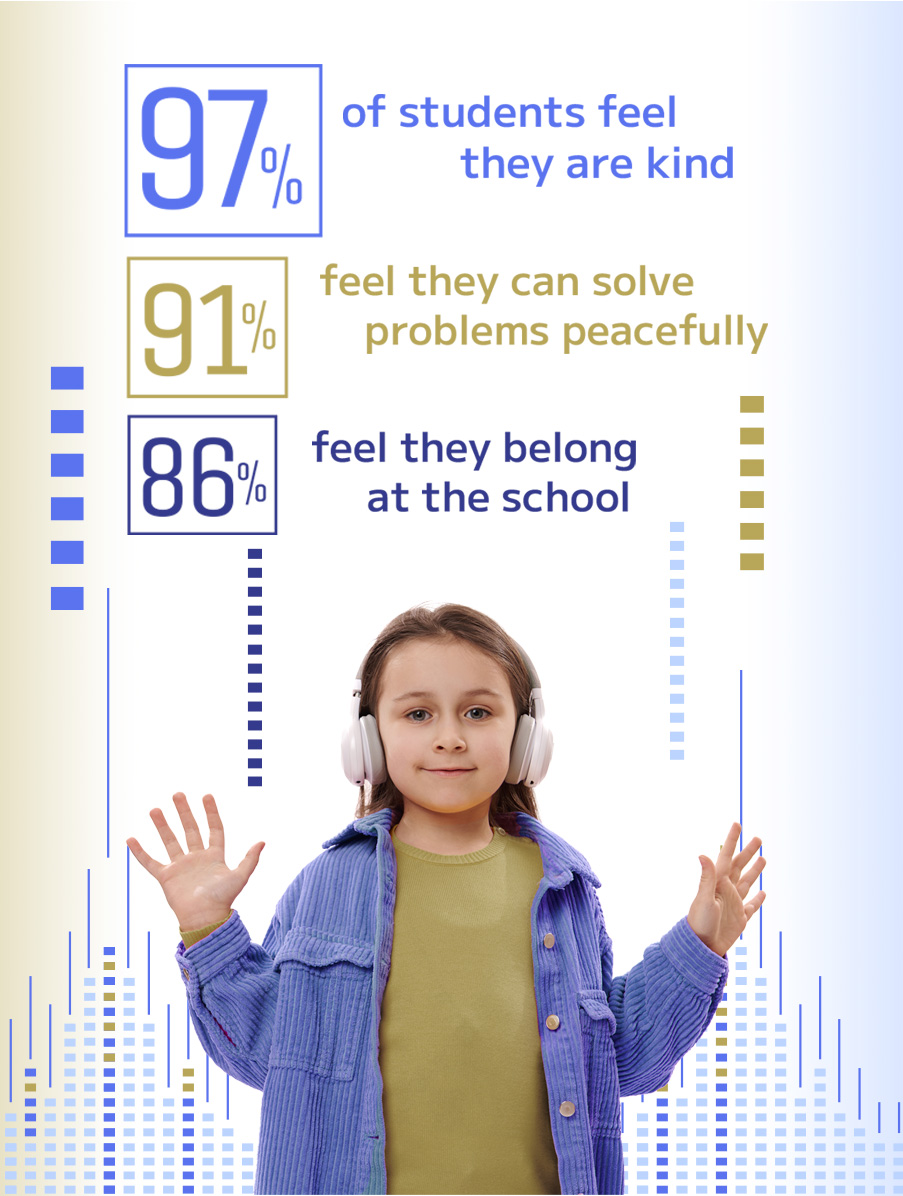School Plan
To foster a supportive and inclusive environment that nurtures both personal and social wellbeing among all students. This includes cultivating self-awareness, encouraging self-acceptance, and building self-esteem, laying the foundation for empathy, respect, and acceptance of others.
How do we foster a school culture that confronts and eliminates racism and focuses on acceptance, empathy and understanding?
Claremont is a bustling high school that offers a wide variety of academic and extracurricular opportunities for a school population that averages close to 1150 students and 100 staff members per year. The Claremont school community has a keen sense of school pride and a collective focus on inspiring students to achieve their best, both inside and outside the classroom.
At the same time, we remain passionately committed to ensuring that all students feel welcomed, supported, safe and positively engaged. As a school community, we must work together to help build a strong culture of positivity and inclusivity, and celebrate our differences. As a school staff, we must continue to improve those processes currently in place that help students connect with each other and with the wide variety of programs, clubs, and teams available in our building.
Students who connect quickly and ‘find their niche’ often enjoy a more positive school experience, which in turn increases their chances of being successful as a learner. In our greater school community that includes parents and caregivers, we must also work to encourage open dialogue that leads to growth and a greater level of acceptance of others.
We are confident that a school-wide focus on acceptance and understanding, and improving student wellbeing, will have a positive effect on the mental health and wellness of our learners. It will also help produce citizens who are more socially and globally aware of how their actions impact others.
This goal and focused inquiry question aligns with Saanich School District’s Strategic Plan; specifically, our Global Citizenship and Mental Health and Wellness strategic priorities. Additionally, our intended approaches are deeply connected to First Peoples Principles of Learning.
Student Sessions with 'One Love Consulting' - 322 responses G9-12
Ministry Student Learning Survey
Ministry Student Learning Survey
Ministry Student Learning Survey
First Peoples Principles of Learning

The Culture of Caring and Inclusivity Goal needs to ensure that:
- Learning is holistic, reflexive, reflective, experiential, and relational (focused on connectedness, on reciprocal relationships, and a sense of place).
- Learning ultimately supports the well-being of the self, the family, the community, the land, the spirit, and the ancestors.
- Learning involves recognizing the consequences of one’s actions.
- Learning involves patience and time.
- Learning requires exploration of one’s identity.
- Encouraging all students to make a trusted connection with at least two adults in our building eachyear by way of transition activities, team and club involvement, and random hallway intros where staff are encouraged to check in with students who aren’t in their classes;
- Increasing the number of clubs and teams that are available for students to join. Over the last two years our school has added 8 new clubs for a grand total of 25 different clubs that students can join, while our athletics department has expanded to 34 options available for joining a sports team;
- Listening to the voices and ideas from our students, especially from those who are members of marginalized communities, new to our building, or cross enrolled with our Individual Learning Centre (ILC) or our South Island Distance Education School (SIDES);
- Instituting a recurring special event twice a year in the form of a school-wide Spartan Celebration to recognize a wide variety of student accomplishments and celebrate the diversity that exists within our building; and
- Enacting a staff initiated and enhanced school wide cell phone policy that is rooted in care and specifically designed to promote relationships, decrease stress levels, and foster more human interaction and connection.
The results of our most recent Student Learning Survey showed that 85% of students surveyed said that they had at least one trusted adult they could turn to for help, and 50% of students confirmed that they had already connected with 4 adults they felt they could trust.
Of our 25 school clubs, 3 of them are almost entirely student-run, including our BIPOC club that promotes the discussion and planning of events that are focused on dismantling racism in our school and our surrounding community.
Anecdotally through empathy interviews, many of our cross-enrolled students have said that they’ve felt more welcomed and have found it easier to transition into a larger school due to the creation of a cross-enrolled TA class led by our counselling team.
72% of secondary students surveyed in our School District said that their main reason for using their cell phone was to scroll through social media; similarly on a recent Student Learning Survey of Claremont students, 75% reported feeling anxious/stressed at school some/most of the time. By minimizing the use of cell phones in our school, especially during class time, we are providing the opportunity for students to be free of distraction, reduce their anxiety/stress levels related to online activity, and interact and form positive relationships.
Our previous school goal was focused on fostering a school culture that confronts and works to eliminate racism, but looking at our most recent survey and empathy interview results we now feel that a greater focus needs to be placed on self-acceptance and self-awareness that will ultimately lead to an overall understanding and acceptance of others.
We are working on creating a more focused survey for our student body that will allow us to gather data related to not being able to use cell phones in class, including how the absence of cell phones impacts school engagement, the formulation of relationships, overall levels of self-esteem, and the ability to think critically.












